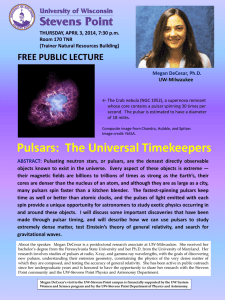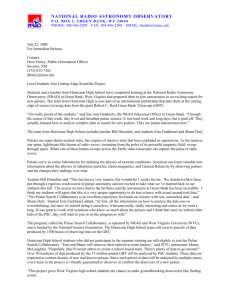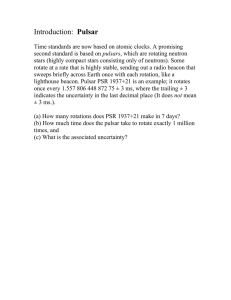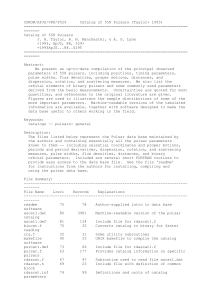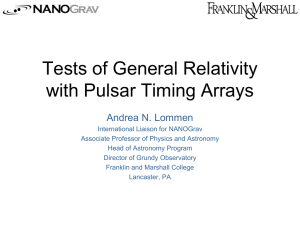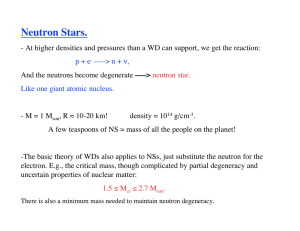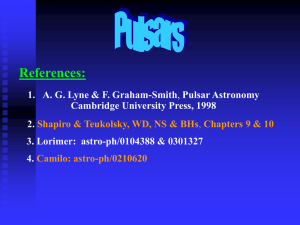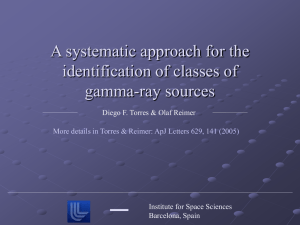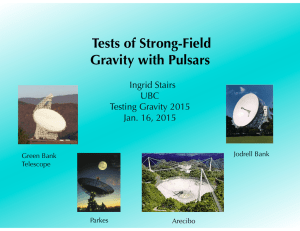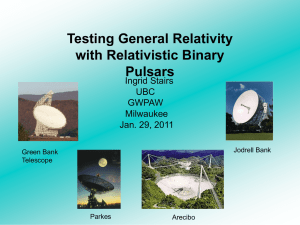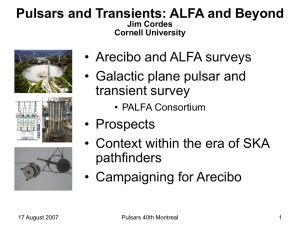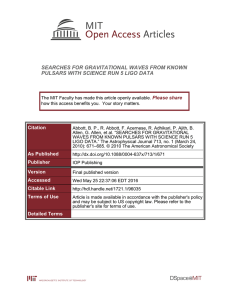The Pulsar Laboratory: Probing Extreme Physics with Radio and Gamma-ray Pulsars
advertisement
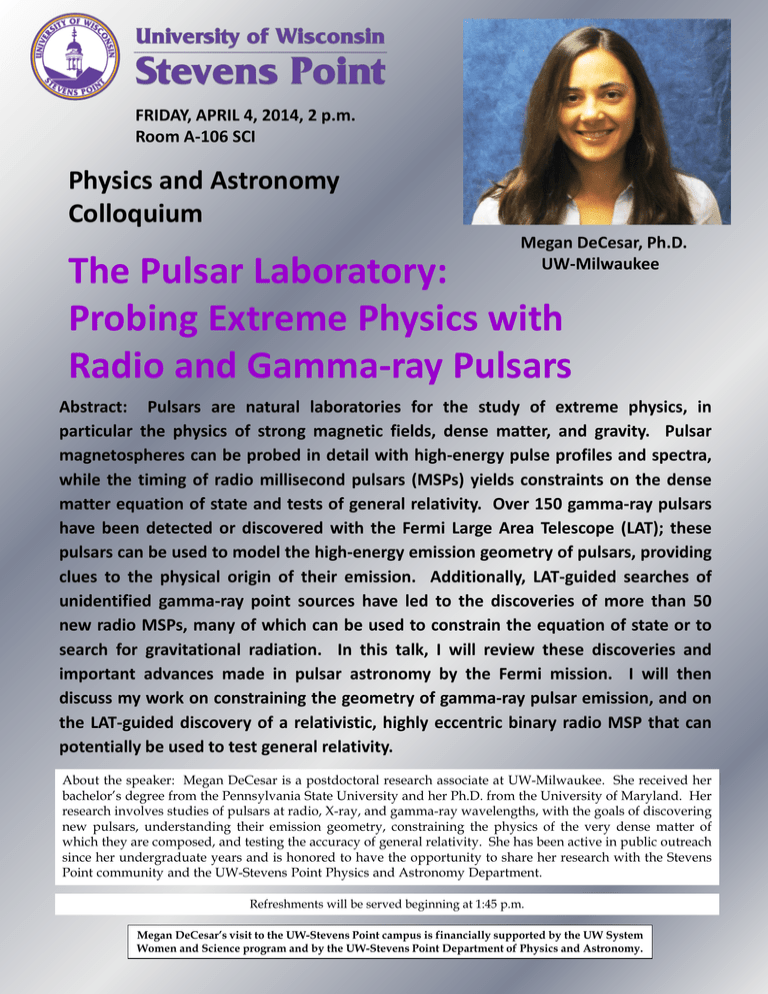
FRIDAY, APRIL 4, 2014, 2 p.m. Room A-106 SCI Physics and Astronomy Colloquium Megan DeCesar, Ph.D. UW-Milwaukee The Pulsar Laboratory: Probing Extreme Physics with Radio and Gamma-ray Pulsars Abstract: Pulsars are natural laboratories for the study of extreme physics, in particular the physics of strong magnetic fields, dense matter, and gravity. Pulsar magnetospheres can be probed in detail with high-energy pulse profiles and spectra, while the timing of radio millisecond pulsars (MSPs) yields constraints on the dense matter equation of state and tests of general relativity. Over 150 gamma-ray pulsars have been detected or discovered with the Fermi Large Area Telescope (LAT); these pulsars can be used to model the high-energy emission geometry of pulsars, providing clues to the physical origin of their emission. Additionally, LAT-guided searches of unidentified gamma-ray point sources have led to the discoveries of more than 50 new radio MSPs, many of which can be used to constrain the equation of state or to search for gravitational radiation. In this talk, I will review these discoveries and important advances made in pulsar astronomy by the Fermi mission. I will then discuss my work on constraining the geometry of gamma-ray pulsar emission, and on the LAT-guided discovery of a relativistic, highly eccentric binary radio MSP that can potentially be used to test general relativity. About the speaker: Megan DeCesar is a postdoctoral research associate at UW-Milwaukee. She received her bachelor’s degree from the Pennsylvania State University and her Ph.D. from the University of Maryland. Her research involves studies of pulsars at radio, X-ray, and gamma-ray wavelengths, with the goals of discovering new pulsars, understanding their emission geometry, constraining the physics of the very dense matter of which they are composed, and testing the accuracy of general relativity. She has been active in public outreach since her undergraduate years and is honored to have the opportunity to share her research with the Stevens Point community and the UW-Stevens Point Physics and Astronomy Department. Refreshments will be served beginning at 1:45 p.m. Megan DeCesar’s visit to the UW-Stevens Point campus is financially supported by the UW System Women and Science program and by the UW-Stevens Point Department of Physics and Astronomy.
